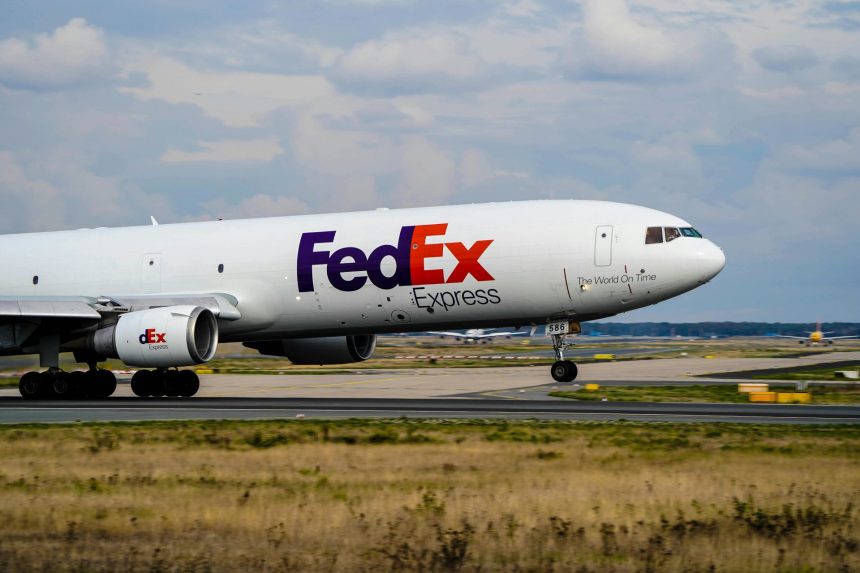Today, moving goods across borders efficiently requires more than just booking cargo space on a ship or plane. The complexities of international logistics—from customs regulations to transport coordination—demand specialist expertise. This is where freight forwarding becomes invaluable, serving as the vital link between businesses and the intricate world of global shipping.
What Is Freight Forwarding?
Freight forwarding involves coordinating and managing the transportation of goods on behalf of shippers. Freight forwarders act as intermediaries between businesses and various transport services, handling everything from documentation and customs clearance to warehousing and insurance. Rather than owning transport vehicles themselves, they leverage relationships with carriers to secure the best routes, rates, and services for their clients.
Think of freight forwarders as logistics orchestrators. They navigate the maze of international shipping regulations, negotiate with carriers, prepare necessary paperwork, and ensure goods reach their destination safely and on schedule. For businesses without in-house logistics expertise, this service proves indispensable.
Why Businesses Need Freight Forwarding Services
Expertise in Complex Regulations
International shipping involves navigating a labyrinth of customs regulations, import/export restrictions, and compliance requirements that vary by country. A single documentation error can result in costly delays, fines, or even confiscated goods. Freight forwarders possess deep knowledge of these regulations and ensure all paperwork meets required standards.
Cost Efficiency
Established freight forwarders maintain strong relationships with carriers and can negotiate preferential rates due to their shipping volumes. They understand which routes offer the best value, which services suit different cargo types, and how to optimise shipping costs without compromising reliability. This expertise often results in significant savings compared to businesses managing logistics independently.
Time Savings
Coordinating international shipments demands considerable time and attention. From obtaining quotes and booking cargo space to tracking shipments and resolving issues, the process can overwhelm businesses focused on core operations. Freight forwarders handle these responsibilities, freeing companies to concentrate on what they do best.
Risk Management
Professional Freight Forwarding services include comprehensive insurance options, protecting goods against damage, loss, or theft during transit. Forwarders also provide contingency planning, identifying alternative routes or solutions when disruptions occur, ensuring supply chain continuity.
Key Services Offered by Freight Forwarders
Transport Coordination
Freight forwarders arrange multi-modal transport solutions, combining sea, air, road, and rail services to create optimal shipping routes. They select appropriate carriers, book cargo space, and coordinate transfers between different transport modes, ensuring seamless movement from origin to destination.
Customs Clearance
Managing customs documentation and procedures represents one of the most valuable services freight forwarders provide. They prepare and submit required documents, calculate and arrange payment of duties and taxes, and liaise with customs authorities to expedite clearance processes.
Warehousing and Distribution
Many forwarders offer warehousing facilities for storing goods temporarily before final delivery. This service proves particularly useful for businesses managing inventory across multiple markets or requiring consolidation of shipments from various suppliers.
Cargo Insurance
Protecting shipments against unforeseen circumstances provides peace of mind. Freight forwarders arrange appropriate insurance coverage, handling claims processes if incidents occur during transit.
Choosing the Right Freight Forwarder
Industry Experience
Look for forwarders with proven experience in your specific industry and the regions where you conduct business. Different cargo types—whether perishable goods, hazardous materials, or oversized equipment—require specialised knowledge and handling.
Network and Partnerships
A forwarder’s global network determines their ability to manage shipments effectively across various destinations. Strong partnerships with reliable carriers and agents worldwide ensure consistent service quality regardless of where goods travel.
Technology Capabilities
Modern freight forwarding relies on technology for tracking shipments, managing documentation, and providing real-time updates. Forwarders offering digital platforms give you visibility throughout the shipping process, enabling better planning and customer communication.
Transparency and Communication
Clear communication about costs, timelines, and potential issues separates excellent forwarders from mediocre ones. Look for partners who provide detailed quotes, regular updates, and proactive problem-solving when challenges arise.
Common Challenges in Freight Forwarding
Unexpected Delays
Weather disruptions, port congestion, customs inspections, or carrier issues can cause shipment delays. Experienced forwarders anticipate potential bottlenecks and develop contingency plans, minimising impact on delivery schedules.
Documentation Errors
Incomplete or incorrect paperwork remains a leading cause of shipping problems. Quality freight forwarders implement rigorous verification processes, catching errors before they cause costly delays.
Rate Fluctuations
Shipping costs can vary significantly based on fuel prices, demand, seasonal factors, and geopolitical events. Good forwarders help clients understand these fluctuations and plan accordingly, sometimes securing fixed rates for predictable budgeting.
Frequently Asked Questions
What’s the difference between a freight forwarder and a carrier?
Carriers own and operate the vehicles, ships, or aircraft that physically transport goods. Freight forwarders don’t own transport equipment but coordinate logistics, booking space with various carriers and managing the entire shipping process on behalf of clients.
How much do freight forwarding services cost?
Costs vary based on shipment size, weight, destination, transport mode, and required services. Forwarders typically charge either a percentage of shipping costs or fixed fees for specific services. Requesting detailed quotes from multiple providers helps compare pricing effectively.
Can small businesses benefit from freight forwarding?
Absolutely. Small businesses often benefit most from freight forwarding expertise, as they typically lack dedicated logistics departments. Forwarders provide access to preferential shipping rates and professional handling that would be difficult to achieve independently.
How long does international shipping typically take?
Timeframes vary considerably. Air freight might take 3-7 days, whilst sea freight ranges from 2-8 weeks depending on origin and destination. Freight forwarders provide estimated transit times based on specific routes and services selected.
What information do I need to provide for a shipping quote?
You’ll need cargo details (dimensions, weight, value), origin and destination addresses, preferred shipping method, required delivery timeframe, and information about any special handling requirements for fragile, hazardous, or temperature-sensitive goods.
Conclusion
Freight forwarding represents an essential service for businesses engaged in international trade, transforming complex logistics challenges into manageable processes. By leveraging specialist expertise, extensive networks, and established carrier relationships, freight forwarders enable companies to expand globally without shouldering the burden of mastering international shipping intricacies. Whether you’re a small business making your first international sale or an established company optimising supply chains, partnering with the right freight forwarder streamlines operations, reduces costs, and provides the reliability necessary for success in today’s competitive global marketplace.
Photo by Jan Rosolino on Unsplash







